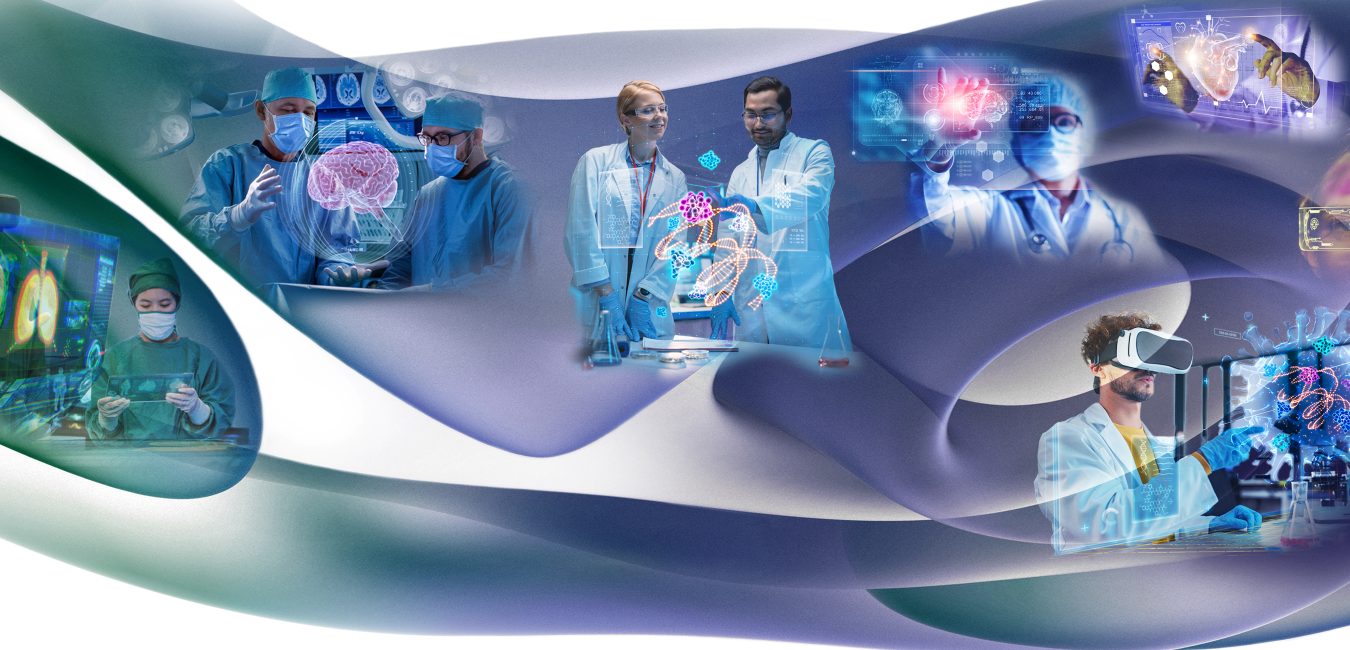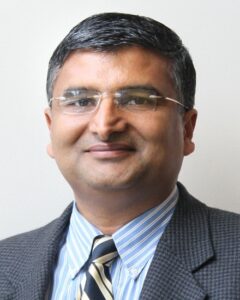
Title: Robotic Transcatheter and Endovascular Interventions
Abstract: Mitral regurgitation is a common heart valve disease. Current approaches for mitral valve repair include open heart surgery (which carries the risk of post-operative complications) and transcatheter mitral valve repair (TMVR). TMVR is a relatively new approach that is performed on a beating heart using a catheter that is guided to the target location to implant the device to reduce or eliminate mitral regurgitation. Given the tortuosity of the path that needs to be taken to reach the mitral valve, TMVR is a clinically challenging procedure. The first part of the talk will focus on our work in developing a highly articulated, intravascular meso-scale robot that can be guided to deploy the mitral valve implant under image guidance.
The second part of the talk will focus on the area of micro-scale robotic systems involving steerable guidewires. One of the primary requirements of an endovascular robotic system is to be able to successfully steer the guidewire towards the target location with minimal or no harm to the vessel. Chronic total occlusions (CTOs) remain the riskiest, most challenging, and least successful vascular lesions to treat with traditional endovascular devices. Peripheral artery disease (PAD) in particular, is one of the most common causes of cardiovascular deaths worldwide. Procedural complexity in treating CTOs are attributed to multiple causes. The second part of the talk will present our work on the development of 400 microns (~0.016”) robotically steerable guidewire as a potential solution to this challenging clinical problem.
Biography: Dr. Jaydev P. Desai is currently a Professor at Georgia Tech in the Wallace H. Coulter Department of Biomedical Engineering and holds the G.P. “Bud” Peterson and Valerie H. Peterson Faculty Professorship in Pediatric Research. He is the founding Director of the Georgia Center for Medical Robotics (GCMR) and an Associate Director of the Institute for Robotics and Intelligent Machines (IRIM). He completed his undergraduate studies from the Indian Institute of Technology, Bombay, India, in 1993. He received his M.A. in Mathematics in 1997 and M.S. and Ph.D. in Mechanical Engineering and Applied Mechanics in 1995 and 1998 respectively, all from the University of Pennsylvania.
He was also a Post-Doctoral Fellow in the Division of Engineering and Applied Sciences at Harvard University. He is a recipient of several NIH R01 grants, NSF CAREER award, and was the lead inventor on the “Outstanding Invention in the Physical Science Category” at the University of Maryland, College Park, where he was formerly employed. He is also the recipient of the Ralph R. Teetor Educational Award and the 2021 IEEE Robotics and Automation Society Distinguished Service Award.
He has been an invited speaker at the National Academy of Sciences “Distinctive Voices” seminar series and also invited to attend the National Academy of Engineering’s U.S. Frontiers of Engineering Symposium. He has over 195 publications, is the founding Editor-in-Chief of the Journal of Medical Robotics Research, and Editor-in-Chief of the four-volume Encyclopedia of Medical Robotics. At 2018 ICRA, his prior work was the finalist for “IEEE RAS Award for the Most Influential Paper from ICRA 1998”.
His research group has received several accolades including the best student paper award, best symposium paper award, cover image of IEEE Transactions on Biomedical Engineering, and featured article in the IEEE Transactions on Biomedical Engineering. His research interests are primarily in the areas of image-guided surgical robotics, pediatric robotics, endovascular robotics, and rehabilitation and assistive robotics. He is a Fellow of IEEE, ASME, and AIMBE.


